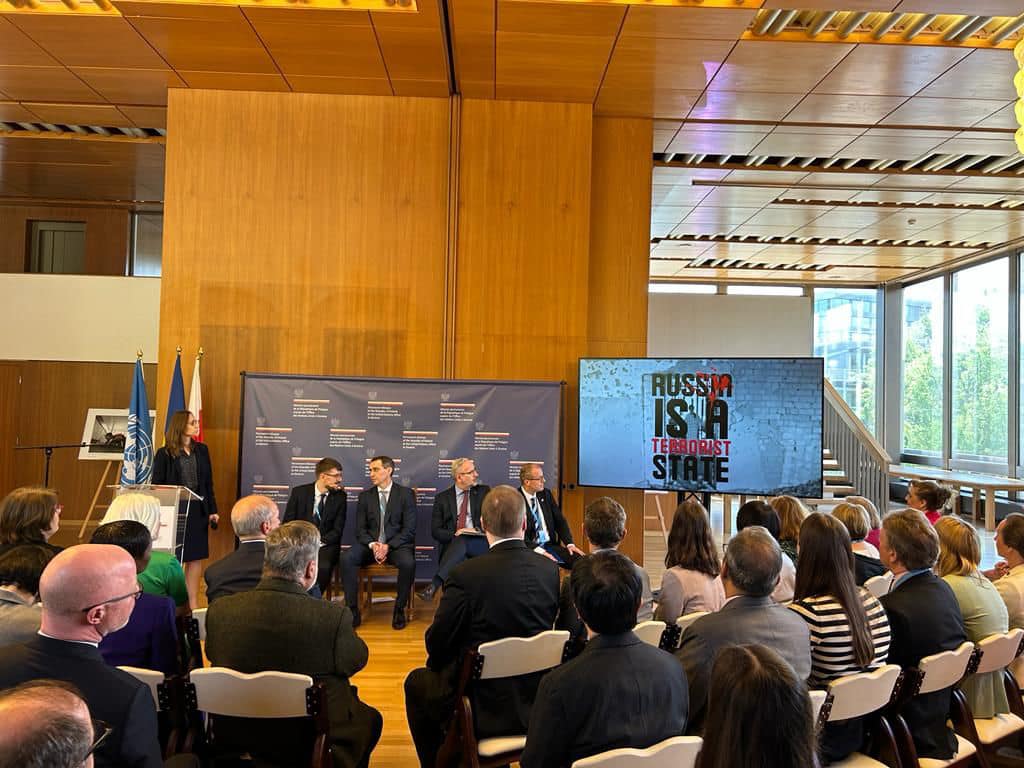Ukrainian delegation took part in the 76th World Health Assembly
The Ukrainian delegation headed by Minister of Health of Ukraine Viktor Liashko took part in the meetings of the 76th World Health Assembly, the highest governing body of the WHO.
“The Ukrainian people stand up in arms to defend universal values, democracy, human rights and freedoms. I am grateful to all civilized countries for supporting the Ukrainian healthcare sector in this difficult time. Unfortunately, russia's unjustified and unjust war against Ukraine continues, and here, at the 76th World Health Assembly, we continue to discuss the issue of russia's large-scale invasion of Ukraine in the context of the WHO mandate. Most russian attacks demonstrate indiscriminate targeting of military and civilian targets. The destruction of medical facilities, maternity hospitals, ambulances, and pharmacies is a separate strategy of the russian war to destabilize Ukraine's healthcare system. And these attacks are only a part of a broader picture of deliberate attacks on civilian infrastructure aimed at creating unbearable living conditions and causing panic among the civilian population,” Viktor Liashko noted.
As of today, russia has already damaged 1498 medical facilities, 185 facilities have been completely destroyed. 103 ambulances have been damaged, 251 destroyed, and 125 seized by russian terrorists. 616 pharmacies were damaged, 49 of which were completely destroyed.
Last year, in May, at the 75th World Health Assembly, a resolution was adopted in support of Ukraine, entitled “Health Emergency in Ukraine, Refugee Host Countries and Countries of Refugee Accommodation Caused by russian Aggression,” designed to help Ukraine withstand and win the fight against the enemy. This resolution, together with the decision of this year's 76th World Health Assembly, will facilitate further implementation of the resolution in support of Ukraine.
Representatives of the Ukrainian side called on all delegates to stop cooperation with russia, because a country that destroys civilian, including medical, infrastructure, depriving civilians of access to medical services, should not feel free to participate in international organizations. In this context, the recent decision of the WHO to close the office for non-communicable diseases in Moscow and delegate its functions to the office in Copenhagen was particularly significant.
Also, thanks to the active position and recommendations of the WHO European Office, the support of the international professional community, and the experience of partner countries, Ukraine is successfully continuing the process of reforming its health care system to ensure that Ukrainians receive accessible, high-quality and free medical care. The developed plan for the recovery of Ukraine's healthcare sector from the consequences of the war for 2022-2032 has allowed us to launch the process of transformation of the healthcare sector. As a result of its implementation, a capable network of medical institutions will be created. In addition, priority is given to ensuring barrier-free access, energy efficiency, infection control, and the introduction of high-tech innovative methods of treatment for children and adults.
